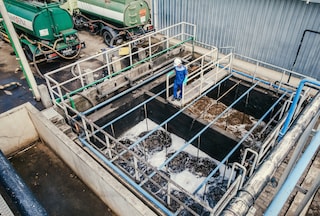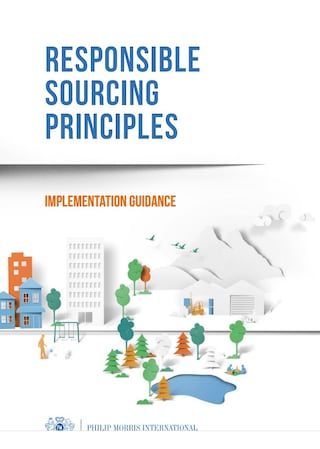
Our 2025 Roadmap goal
see our full 2025 roadmapPRESERVE NATURE
Promote biodiversity, address critical water challenges, ensure no conversion of natural ecosystems, and halt deforestation in both our tobacco and pulp and paper supply chains.
Key performance indicators to track our progress

See full performance metrics
view dataLearn more about PMI’s Sustainability Index in our Integrated Report 2021. See the full performance metrics and related footnotes here.
The right thing to do
We collectively depend on soil, land, forests, and water, which provide resources and services critical to human existence. Moreover, a healthy natural ecosystem plays a vital role in tackling climate change, with land and oceans absorbing and storing carbon from the atmosphere.
Read moreThe business case
Our business activities rely on healthy ecosystems. The degradation and loss of natural capital can cause disruptions and increase production costs. The raw materials used in our products rely on fertile soil, stable climate conditions, and access to water.
read more
Our progress in 2021
Read more in our Integrated Report2021 performance highlights
- Rating A received for water security and forest protection from the CDP
- 100 percent of flue-cured tobacco is purchased at zero risk of gross deforestation
- 75 percent of flue-cured tobacco purchased by PMI was cured using renewable and traceable fuels
- 437,915m3 of water optimized in PMI’s tobacco-growing areas
This online content about our Integrated Report should be read in conjunction with PMI’s 2021 Integrated Report. The information and data presented here cover the 2021 calendar year or reflect status at December 31, 2021, worldwide, unless otherwise indicated. Where not specified, data come from PMI estimates. Please also refer to 'This report at a glance' on page 5 of the 2021 Integrated Report for more information. Aspirational targets and goals do not constitute financial projections, and achievement of future results is subject to risks, uncertainties and inaccurate assumptions, as outlined in our forward-looking and cautionary statements on page 252. In the 2021 Integrated Report and in related communications, the terms “materiality,” “material,” and similar terms, when used in the context of economic, environmental, and social topics, are defined in the referenced sustainability standards and are not meant to correspond to the concept of materiality under the U.S. securities laws and/or disclosures required by the U.S. Securities and Exchange Commission.







